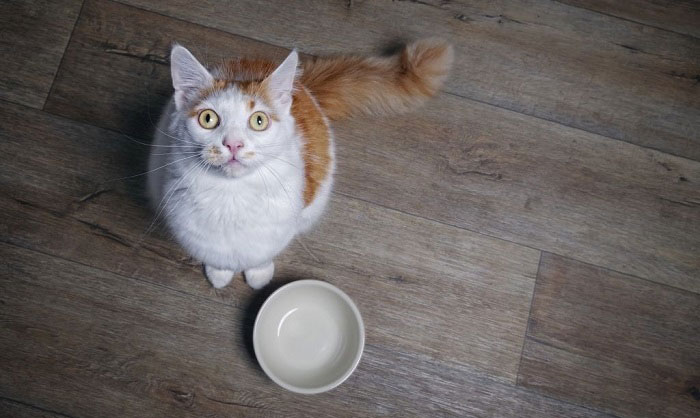As cat owners, we often marvel at our feline friends’ independent nature. However, their well-being is closely tied to regular nutritional intake. Understanding the implications of a cat refusing to eat and the potential health consequences is vital. It’s especially important to recognize when reduced appetite is a signal of underlying health issues and requires immediate attention.
Understanding a Cat’s Nutritional Needs
- Basic Nutritional Requirements: Cats need a diet high in animal protein, moderate in fats, and minimal in carbohydrates. Essential nutrients like taurine, specific amino acids, and fatty acids must come from their diet, as they cannot produce these themselves.
- The Risks of Fasting in Cats: Cats have a unique metabolism that, unlike many other animals, does not cope well with fasting. Their liver is not efficient at processing fat reserves for energy, leading to a dangerous condition called hepatic lipidosis or fatty liver disease.
How Long Can a Cat Safely Go Without Food?
- Typical Timeframe: While survival for up to two weeks is possible, significant health risks arise after 24-48 hours without food. This is especially critical for overweight cats, who are more prone to hepatic lipidosis.
- Factors Influencing This Timeframe: A cat’s overall health status greatly impacts how long they can go without eating. Kittens, seniors, and cats with chronic conditions like diabetes should not go without food for even a day.
Recognizing the Signs of a Problem
- Symptoms of Concern: Early signs include a lack of interest in food, followed by lethargy and possible weight loss. As the condition worsens, symptoms might escalate to vomiting, diarrhea, jaundice, or collapse.
- When to Seek Veterinary Care: Immediate veterinary care is essential if a cat refuses food for over 24 hours or if any other concerning symptoms are present. Early intervention can prevent the progression of potentially fatal conditions.
Potential Causes of Appetite Loss in Cats
- Health-Related Causes: Oral health issues, gastrointestinal problems, pancreatitis, kidney disease, or cancer can lead to decreased appetite. Psychological stress or discomfort, such as changes in the home or the presence of other pets, can also impact eating habits.
- Behavioral and Environmental Factors: Factors like changes in diet, feeding times, or the placement of food bowls can affect a cat’s willingness to eat. The type of food (wet or dry, brand, flavor) can also play a role.
Addressing Appetite Loss
- Veterinary Interventions: Treatment may include fluid therapy, anti-nausea medications, appetite stimulants, or in severe cases, nutritional support through a feeding tube. Identifying and treating the underlying cause is critical.
- Home Care Strategies: Offering a variety of foods at room temperature, feeding in a quiet, comfortable place, and maintaining a consistent routine can encourage eating. Avoid making sudden dietary changes and provide fresh water at all times.
Prevention and Early Intervention
- Regular Health Check-ups: Routine examinations allow for early detection and treatment of conditions that could lead to loss of appetite. Discuss your cat’s diet and eating habits during these visits.
- Monitoring Eating Habits: Keeping a close eye on your cat’s eating patterns is key. Changes in appetite, preferences, or eating behavior should be taken seriously. Maintaining a stress-free environment and providing mental stimulation can also promote healthy eating habits.
Conclusion
Regular eating is essential for a cat’s health. The inability to eat can quickly lead to serious health issues, making it crucial for cat owners to monitor their pet’s eating habits and seek veterinary care when changes occur. Understanding your cat’s nutritional needs and staying alert to their eating behavior can ensure they remain healthy and happy.

Jane Doe, a veterinarian with over 10 years of experience, combines her deep knowledge of animal health with a passion for pet welfare at PetsPonder.com. With a DVM degree and a commitment to the latest in veterinary science, Jane Doe offers reliable, compassionate advice to help pet owners make informed decisions for their furry companions.

Leave a Reply